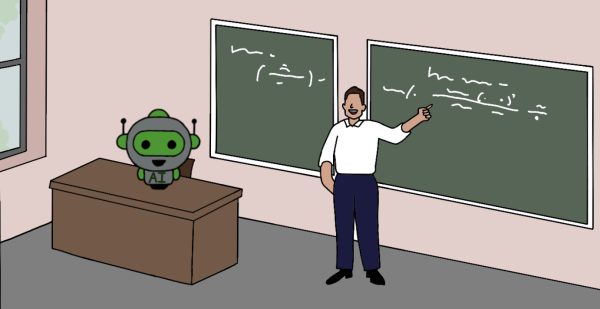
Tulane University professors across different subjects are integrating artificial intelligence into their classes to better equip students for their future careers.
Julia Lang, who teaches TIDE 1048: AI Unleashed and DATA 2150: Applied Generative AI, focuses on helping students use AI responsibly and understand its potential influence on their future careers. Lang is the associate director for career education at the Phyllis M. Taylor Center for Social Innovation and Design Thinking.
Lang’s journey with AI in education began with TYLR 3000: Taylor Your Life, a career-focused course she founded.
“My entryway into AI was using AI to support the career exploration journey,” Lang said. “I found that it was a really powerful tool to help in ideation and to help students supplement their imaginations about what’s possible.”
In her TIDE 1048: AI Unleashed: Mastering ChatGPT for Success class this semester, Lang introduces students to responsible AI practices, starting with effective prompt-writing techniques to achieve better outputs. Later, students apply these skills in a project examining AI’s impact on a field of their choice.
“She’s really taught us how we can use AI in every aspect of the academic space, in a safe way that’s not in a cheating way, and more of just a way that’s increasing the way that we learn,” freshman Ryan Schnell said, who is majoring in economics and finance.
“I’d say the biggest one that I’ve used is [that] she’s taught us how we can use AI to help us study for exams. So I’ll now put my practice exams for some of my classes in ChatGPT, and ask [it] to create example practice problems,” Schell said.
Schnell centered his project on stock analysis.
“I basically created a custom GPT which acted as a stock picker. And through the GPT, I inputted different modes of valuation that companies use to evaluate a stock, looking at the market valuation of the company, how they’ve improved in the past. And basically took all that information, and the GPT asks you to input a company,” Schnell said. “And then it will give a pretty complex analysis of the company, and at the end, give a prediction on whether they believe you should invest or not invest in the company based on the information.”
In his information technology and cybersecurity courses, Bill Rials, associate director and senior professor of practice for information technology, takes a slightly different approach to incorporating AI.
“[We] stop trying to catch students using AI, we make the assumption that students are using AI, and we want to teach them to use it responsibly and ethically as well,” Rials said. “So we work some of our assignments to take [that] into account. Some of our instructions in our assignments. Go out and use ChatGPT, use Gemini, use Copilot, and tell us what prompts you used to help work through this assignment.”
Rials said that he started integrating artificial intelligence into his classes because “we should prepare our students to be stewards and thought leaders and catalysts for change out into the real world, and the real world of the future will be AI-driven.”


